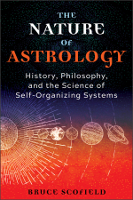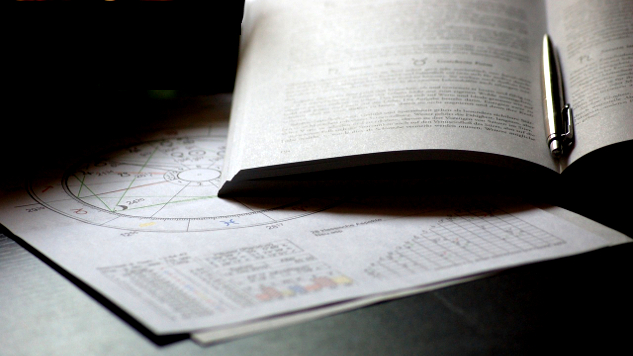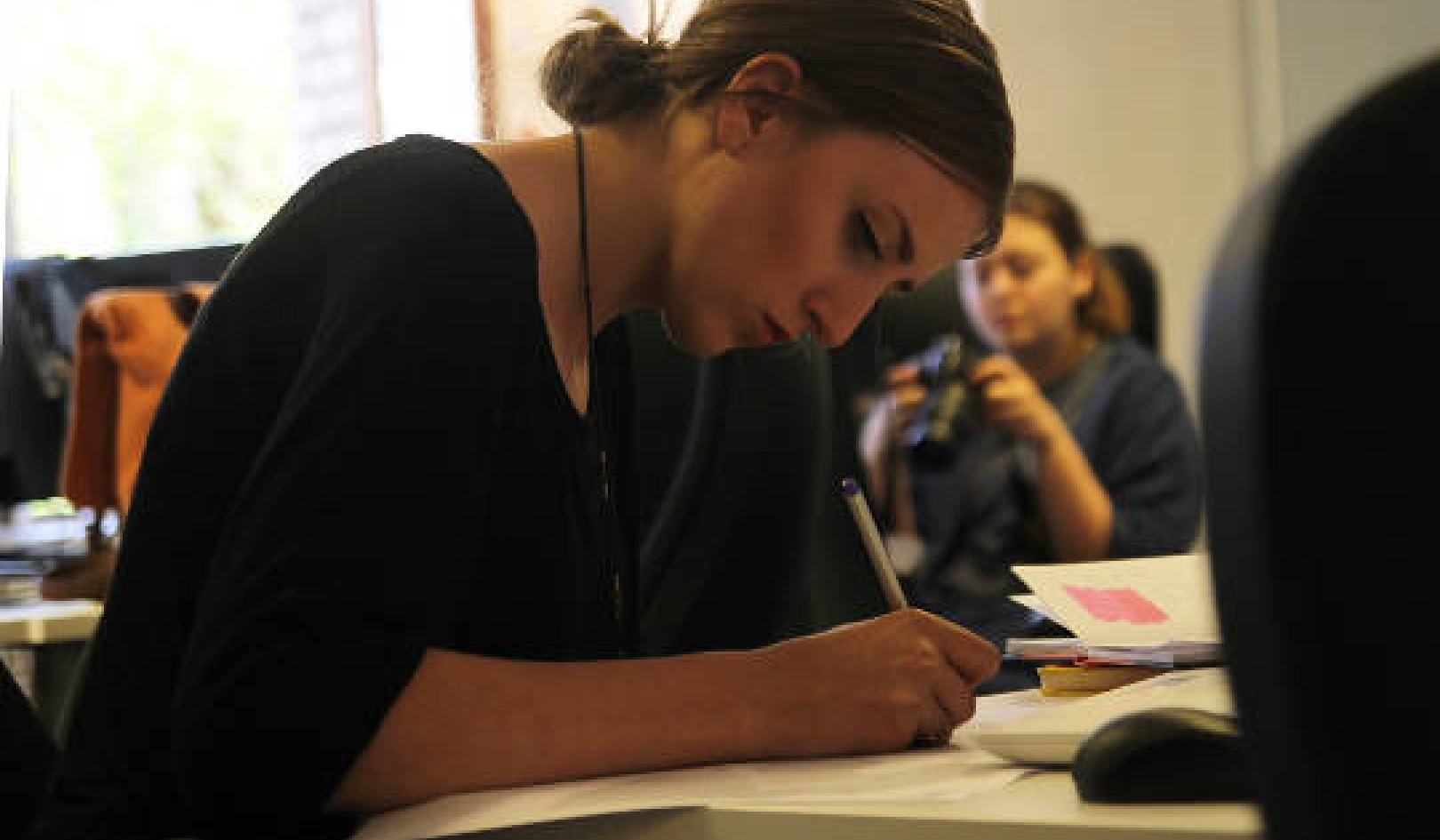Testing astrology is difficult, in part, because of the constantly changing cosmic environment and, consequently, the individual nature of each astrological chart. If every chart is unique, where is the standard against which differences might be assessed? Only with large sample sizes, like those of the Gauquelin studies, can these problems be overcome. (One of the Gauquelin studies used a sample of over twenty-five thousand from five countries )
Another problem has to do with the complex nature and variations of human personality. Many critics assume there are but twelve standard astrological types, but that is hardly the case. The Gauquelins, husband and wife research team, were able to tease out a few very general personality types and found correlations with profession and heredity, but these don’t capture the nuances that are found by experienced astrologers in natal charts. Astrologers claim to describe a wide range of general types, each composed of a collection of behaviors and attitudes, that are subject to infinite variations that may or may not be internally integrated.
While it could be said that natal astrology provides a general multi-level model of personality, it is also used for synthesizing and organizing a given set of psychological traits in ways that offer insight into the self (a phenomenon that resists reduction). These astrological measurements and interpretations differ significantly from the far more simplistic models used in psychology, and they make for difficulties in the design of experiments.
Clark Study: Testing of Astrologers in a Blind Trial
At present, a wide range of astrological methodologies remain to be tested, largely due to lack of institutional support and funding. One alternative approach to this immense problem is the testing of astrologers in a blind trial, conducted as either a test of the abilities of astrologers to match astrological charts with a set of personality profiles or for them to distinguish between charts of very different people. Several studies of this type have been conducted.
Some of the first studies in this category were conducted by Vernon Clark, a psychologist who studied astrology, and his results were published in 1960 and 1961. In three studies, titled “An Investigation of the Validity and Reliability of the Astrological Technique,” Clark tested the abilities of individual astrologers to essentially fit an astrological chart to a described person.
The trials were well designed, thoroughly analyzed, and met high standards for this sort of research. Each test included an experimental group (the astrologers) and a control group (which consisted of psychologists and social workers). The first test required twenty astrologers to match five astrological charts with five case histories (focused on professional history) of males, and then do the same with a second group consisting of females.
In the second test, twenty astrologers were given ten case histories and two charts for each of these. They were asked to choose which of the two charts (one of which was based on a random date of the same year) best matched a detailed case history.
The third test asked thirty astrologers to distinguish between the charts of persons having an IQ of over 140 and charts of persons with incurable brain damage (cerebral palsy). The results of these tests were quite spectacular, statistically speaking, in favor of the astrologers, and the research was published in an obscure astrology journal.
Carlson Study: Led by a Physicist
In 1985 the prestigious journal Nature published the results of a study that tested the ability of astrologers, given a set of psychological profiles, to match astrological charts with their owners (Carlson 1985). Shawn Carlson, an undergraduate in physics at the time of the study, stated he was testing the fundamental astrological thesis that the planetary positions at the time of birth can be used to determine the personality traits of a subject. The participating astrologers were selected by a leading American astrological organization, the National Council for Geocosmic Research (NCGR).
A total of twenty-eight astrologers from the United States and some from Europe were selected and asked to calculate and prepare a natal chart interpretation for a number of volunteer subjects. Next, the subjects were given the natal chart interpretation for their own birth data, plus those of two other persons, and asked to select the one that they found to best match their own personality.
In the second part of the study, the astrologers were given an astrological chart of one of the subjects along with three reports generated by the California Personality Inventory (CPI), which offered them eighteen personality trait scales generated from 480 questions given to each subject. They were then asked to select the natal chart that best matched the CPI. In both cases two selections were made, a first and second, but no ties were allowed. The study was double-blind, and all tests were coded and known only to Carlson’s graduate advisor, physicist Richard A. Muller.
Of the subjects recruited for the study, 70 percent were college students. Subjects were asked questions about astrology and those who were strong disbelievers were rejected as were those who had previously had astrological chart readings. After these and other factors were accounted for, a total of 177 subjects were assembled, comprising 83 in the test group and 94 in the control group.
The results of the first part of the study, in which subjects select the natal chart interpretation they thought best fit them, came in at the level of chance. The control group, having been asked to choose the CPI that fit them best, came in at chance also. In the second part of the study, where CPI reports and natal charts were matched, the astrologers came in at below the level of chance. Carlson concluded that his study clearly refuted the astrological hypothesis (that astrology is valid), and the study went on to become a first-ranked, frequently-cited scientific paper and a solid resource for skeptics. It has been called a devastating verdict for astrologers.
The Carlson Study Contested
The Carlson study has been contested, however (Vidmar 2008; Currey 2011; McRitchie 2011). Hans Eysenck, who has a controversial legacy but was a leading personality theorist and creator of his own psychological personality inventory, objected that the CPI was a bad choice for the study and that a psychologist, not a physicist, should have been involved with the experiment. The format, a choice of three rather than two selections, has also been argued to be an unnecessary bias.
Astrologers who participated claimed the CPI reports did not distinguish between male or female and the reports were more similar to each other than not, making confident choices impossible. Astrologers also complained that Carlson did not listen to their suggestions in regard to what they were actually capable of doing and what they needed to do their work properly. In addition, the astrologers were required to do an immense amount of uncompensated work, as a written natal chart interpretation from an experienced professional astrologer was worth upwards of a hundred dollars in the market at that time.
Carlson’s failure to cite similar previous studies, even if flawed, or even mention the Gauquelins’ findings, is inconsistent with introductory references to previous studies that are typically found in scientific papers. A reappraisal of the study done by Ertel found significant errors in Carlson’s use of statistics, and he judged the study to be very weak due to small sample size, far below what was expected of the Gauquelins, for comparison. And, when the study was analyzed properly, Ertel found that the astrologers actually performed slightly better than chance (Ertel 2009).
Studies similar to Carlson’s, in which astrologers were asked to distinguish between charts of persons with mental disabilities and those of superior intelligence, were conducted by Vernon E. Clark. The astrologers performed well above chance (p = 0.01; Clark 1961). P=0.01 means one chance in a hundred.
Comparing Apples to Oranges?
What is to be made of this situation? As one of the twenty-eight astrologers who participated in the Carlson study, I did find it a time- consuming, uncompensated, and extremely frustrating task, the major problem being the differences between how personality is assessed and organized by astrology and by the CPI, or any psychological inventory for that matter. The study assumed that these two methods of personality description (personality being a nebulous thing to begin with) would be interchangeable—but they aren’t.
An analogy would be to test the abilities of two groups of surveyors to measure a complex land formation, one using the metric system and the other the U.S. customary system, and pretend that one is legitimate and the other isn’t. This situation raises another significant problem mentioned earlier.
Studies like Carlson’s assume that astrologers, even ones selected by a reputable organization, will perform similarly, and this is far from the truth. Consider that, aside from the fact that differing specialties require different knowledge, doctors, psychotherapists, and other consultants are known to arrive at different diagnoses or assessments, and some are clearly much better or worse than others. At the time of this writing, for example, I am on a fourth diagnosis for a chronic physical problem, after previously seeing three other doctors whose assessments proved false.
My experience has been that the interpretive abilities of astrologers, like those of teachers, doctors, psychotherapists, and artists, are all over the charts, so to speak. Talent is a major factor and, unlike major league baseball players or jazz musicians whose abilities are in plain sight or sound, there hasn’t been a sorting out process in astrology, with the exception of personal business success, which depends largely on a specialized set of social skills. This is partly because many in the astrological community regard certification tests as objectionable and follow whatever path their teachers or personal interests have set them on.
Astrological Certification?
Certifications do exist in the astrology subculture but vary widely, and most fall a bit short, in my opinion, of what might be expected of a person in a normal academic environment. Most other fields rely on quantifiable achievements, such as degrees and certifications, but due to its peculiar historical circumstances, the field of astrology still lacks strong institutions and ways of ranking expertise in different specialties, an important issue and too easily glossed over when studies like Clark’s or Carlson’s are criticized.
While this situation has been improving in recent years, it is still the case that anybody with a business card, Facebook page, and enough hutzpah can be an astrologer. Getting astrologers to agree on a set of standards is like herding cats, and the result is that people in the non-astrology world have no idea who is who in the field.
For example, one study similar to Carlson’s, conducted by two members of the psychology department at the University of Indiana, used six “expert” and “cooperative” astrologers drawn from a relatively unknown local astrology group with no indication of their qualifications except membership in a very small organization and a recommendation by a numerologist (McGrew and McFall 1990).
Despite these points, this pathetic study, which concluded that astrologers cannot match natal charts to a personality profile, continues to be cited. That being said, there are some very intelligent and highly competent astrologers out there, it just takes some time to sort them out from the noise.
©2023 Bruce Scofield - all rights reserved.
Adapted with permission of the publisher,
InnerTraditions Intl www.innertraditions.com
Article Source:
The Nature of Astrology: History, Philosophy, and the Science of Self-Organizing Systems
by Bruce Scofield. While astrology is now mostly viewed as subjective fortune-telling, Bruce Scofield argues that astrology is not only a practice but also a science, specifically a form of systems science--a set of techniques for mapping and analyzing self-organizing systems.
While astrology is now mostly viewed as subjective fortune-telling, Bruce Scofield argues that astrology is not only a practice but also a science, specifically a form of systems science--a set of techniques for mapping and analyzing self-organizing systems.
Presenting a broad look at how the cosmic environment shapes nature, the author shows how the practice and natural science of astrology can expand its applications in modern society in such varied fields as medicine, history, and sociology.
Click here for more info and/or to order this book.
About The Author
 Bruce Scofield holds a doctorate in geosciences from the University of Massachusetts, a master’s degree in social sciences from Montclair University, and a degree in history from Rutgers University. Currently an instructor for Kepler College and president of the Professional Astrologers Alliance, he is the author of 14 books. Bruce (b. 7/21/1948) began studying astrology in 1967 and has earned a living as an astrological consultant since 1980.
Bruce Scofield holds a doctorate in geosciences from the University of Massachusetts, a master’s degree in social sciences from Montclair University, and a degree in history from Rutgers University. Currently an instructor for Kepler College and president of the Professional Astrologers Alliance, he is the author of 14 books. Bruce (b. 7/21/1948) began studying astrology in 1967 and has earned a living as an astrological consultant since 1980.
You can contact him through his web site: NaturalAstrology.com/



























